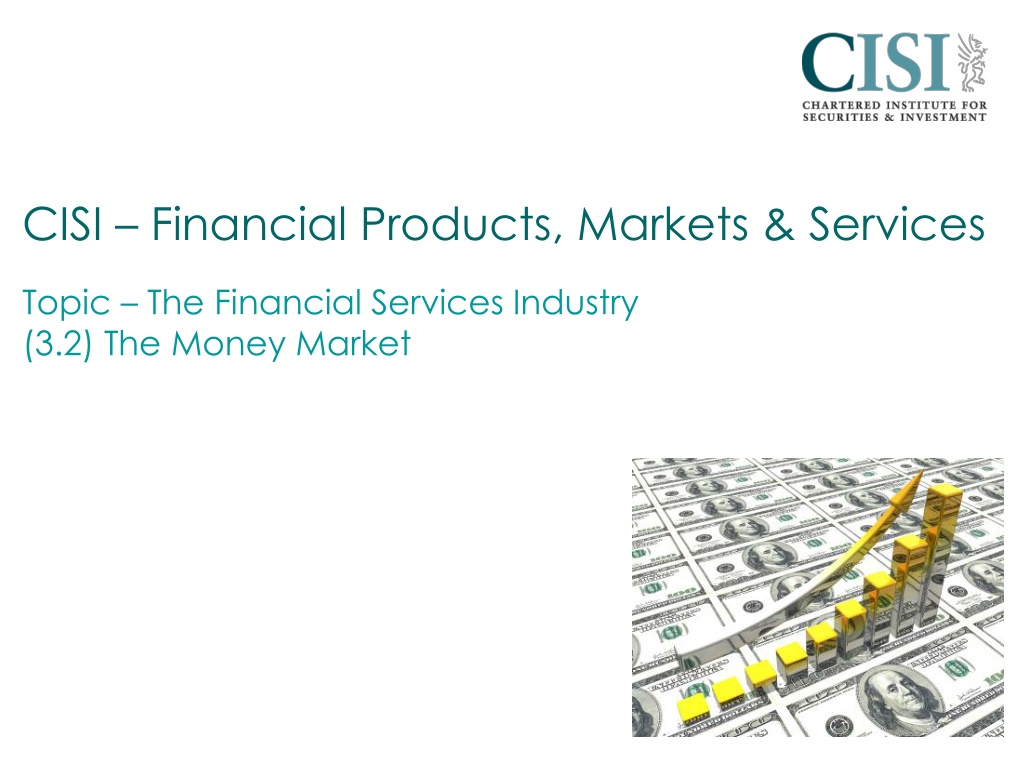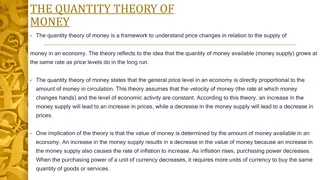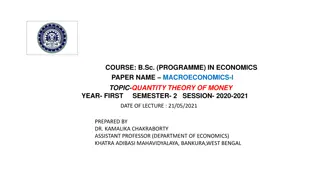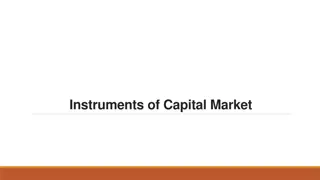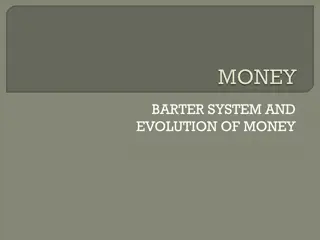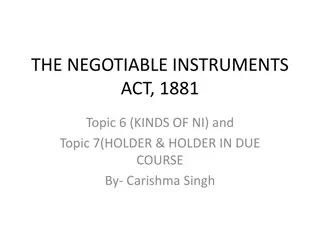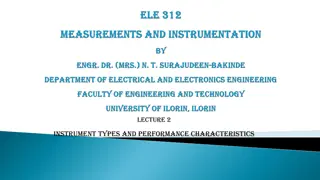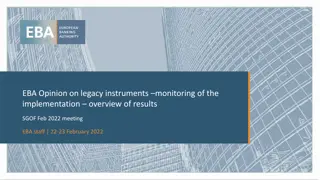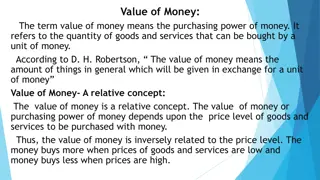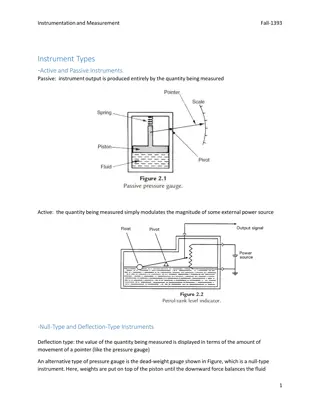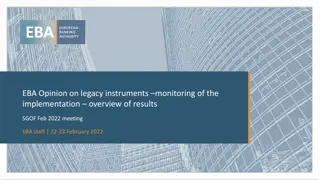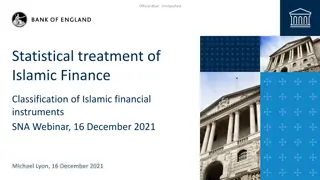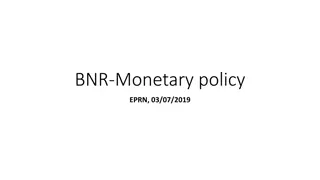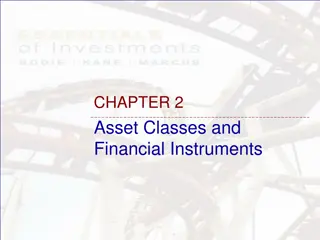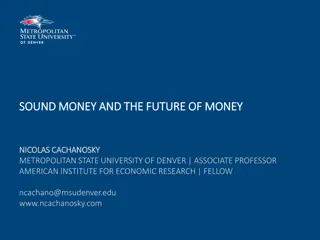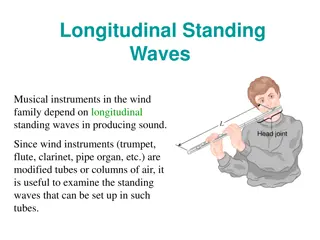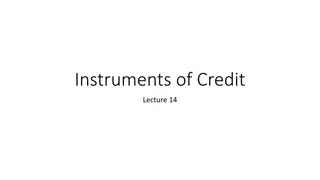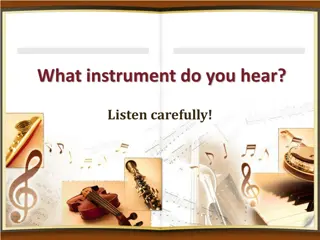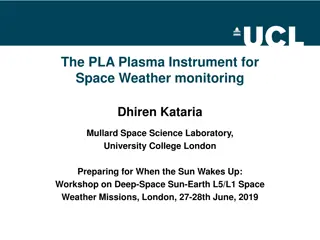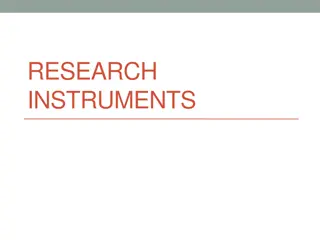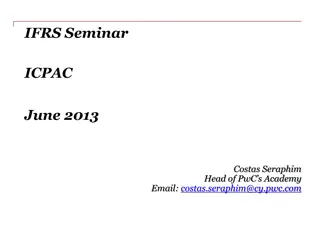Money Market Instruments Overview
The money market is a key aspect of the financial services industry, providing short-term investment opportunities. Treasury bills, certificates of deposit, and commercial paper are common money market instruments, each offering unique features for investors. Treasury bills are ultra-short gilts issued by the UK government to meet short-term borrowing needs, while certificates of deposit resemble a mix of bonds and cash deposits, offering fixed returns for deposited amounts. Understanding these instruments is essential for investors looking to diversify their portfolios.
Download Presentation

Please find below an Image/Link to download the presentation.
The content on the website is provided AS IS for your information and personal use only. It may not be sold, licensed, or shared on other websites without obtaining consent from the author.If you encounter any issues during the download, it is possible that the publisher has removed the file from their server.
You are allowed to download the files provided on this website for personal or commercial use, subject to the condition that they are used lawfully. All files are the property of their respective owners.
The content on the website is provided AS IS for your information and personal use only. It may not be sold, licensed, or shared on other websites without obtaining consent from the author.
E N D
Presentation Transcript
CISI Financial Products, Markets & Services Topic The Financial Services Industry (3.2) The Money Market
What is the Money market? Generally speaking, it is a market for shorter-term bonds. What is the difference between Capital Market and Money Market instruments? Capital Market instruments refers to equities and bonds, used to raise long- term capital. Money Market instruments raise cash for shorter term periods of up to a year. Investing in Money Market instruments There is a high minimum subscription - more suitable for institutional investors like pension funds and insurance companies Wholesale institutional market Accessible to retail investors indirectly through collective investment funds Administrative costs are low they are issued in bearer form no register maintenance. Most are issued below par value with no coupons
Types of Money Market Instruments In the UK, the three main money market instruments are: Treasury Bills Certificates of Deposit (CDs) Commercial Paper (CP) Activity In groups, using the sheets provided and the internet, find out about one of the three types of market instruments. You will then be asked to tell the rest of the groups about what you have found out.
Treasury Bills Treasury Bills are a form of ultra-short gilt Who issues them and why? Issued by the Debt Management Office (DMO) on behalf of the UK Treasury Used to meet short-term borrowing needs of the Government How often are they issued? Issued every week, unlike normal traditional gilts How do investors make a return? No coupons are paid (non-interest bearing) Issued discount to par value (Par value paid back on maturity) e.g. Treasury Bill of 1,000 nominal sold for 990 Upon maturity three months later, investor is repaid 1,000, invests pockets the difference of 10 Return on investment is 1% over three months AER is 4.06% How long do they take to mature? Commonly, they will be redeemed after one, three or six months
Certificates of deposit (CDs) Resembles an instrument half-way between a bond and a cash deposit Who issues them? Issued by banks in return for deposited money. How long can they be held for? The deposit is for a specified period of time it varies Traditionally this is for a maximum of five years but usually much less How do they work? Investors deposit a fixed sum minimum in the UK is 100,000 They can be thought of as tradeable or negotiable deposit accounts, as they can be bought and sold in a similar way to shares: Example: Lloyds Banking Group might issue a CD to represent a deposit of 1 million from a customer, redeemable in six months. The CD will specify that Lloyds will pay the 1 million back plus interest of, say, 0.5% of 1 million. If the customer needs the money back before six months has elapsed, he can sell the CD to another investor in the money market. How do investors make a return? The bank will pay interest on the deposited amount, which can be fixed or variable. The investor receives their deposited sum back at the set end date
Commercial Papers (CPs) Equivalent of a Treasury bill a short-term bond Who issues them and why? Issued by large companies instead of governments In the UK, the borrower must be listed on the stock exchange and must have substantial net assets To meet a company s short-term borrowing needs How long can they be held for? Companies can issue CPs with different maturities depending on it s needs e.g. One month, three months, six months etc In the UK, The maturities of commercial paper must be between 7 and 364 days How do they work? The company will agree in advance with its banker on a programme of CP issues say, 10m over the course of a year Company issues the CP to the bank with a series of different maturities, depending on its short-term funding needs Company can also issue CP in different currencies How do investors make a return? No coupons are paid (non-interest bearing) Issued discount to par value (Par value paid back on maturity)
Commercial Papers (CPs) Source: Bank of England A feature of the 2008 Credit Crunch was the unwillingness of the banks to lend long-term. This led to a spike in CP issuance, as companies turned to short-term sources of finance
Settlement of Money Market Instruments All money market instruments in the UK have been dematerialised There are no actual certificates or bills: Ownership is registered electronically Changes of ownership (i.e trade settlement) is effected through the CREST system Commonly, settlement on the day of the trade or the following business day
Money Market Funds What are they? Funds set-up, which contain and invest in Money Market instruments Pools together the funds of other investors, giving them indirect access to assets they would not otherwise be able to invest in. Investors buy into the fund and therefore invest indirectly they buy units in the fund, not individual Money Market instruments as private investors Types of Money Market Funds The Investment Management Association (IMA) introduced two money market sectors which came into effect on 1 January 2012: 2. Money market funds: 1. Short-term money market funds: Can have a constantnet asset value (the NAV remains unchanged when income in the fund is accrued daily) Must have a fluctuating net asset value Can also have a fluctuating NAV
Money Market Funds Risks Placing money with a money market fund may be less risky that Placing funds in a money market account (CDs) With CDs, the investor is exposed to the risk of that bank. A money market fund will invest in a range of instruments from many providers, and as long as they are AAA-rated they can offer high security levels. A rating of AAA is the highest rating assigned by a credit rating agency. Regulations In the UK, money market funds may only invest in approved money market instruments and deposits with credit institutions and meet other conditions on the structure of the underlying portfolio BUT money market funds may invest in instruments in which the capital is at risk and so may not be suitable for many investors.
Investing in Money Market Instruments Advantages Low risk the nominal is preserved Disadvantages Only suitable for short-term investing Over the medium- to long-term, the money markets have under-performed many other investment types Useful during times of uncertainty Quick returns short-term nature Money Market Funds - pooling of funds with other investors gives the investor access to assets they would not otherwise be able to invest in. Professional market only accessible to private investors through money market funds or money market accounts
